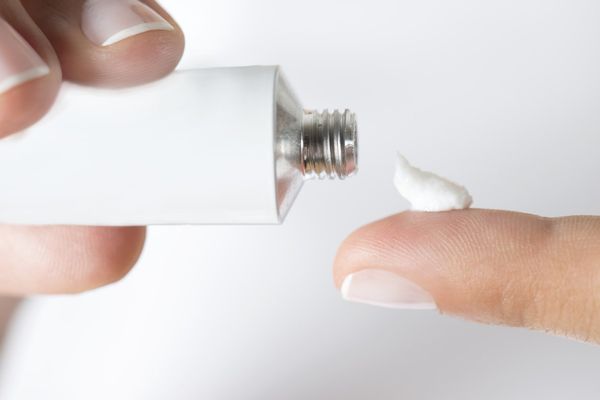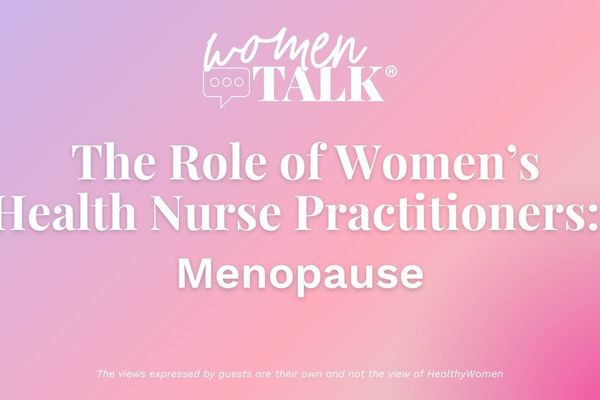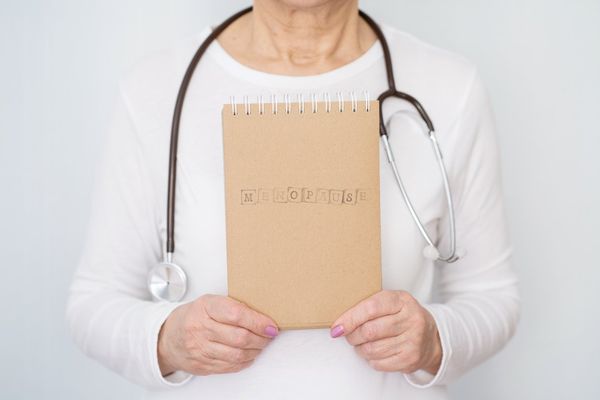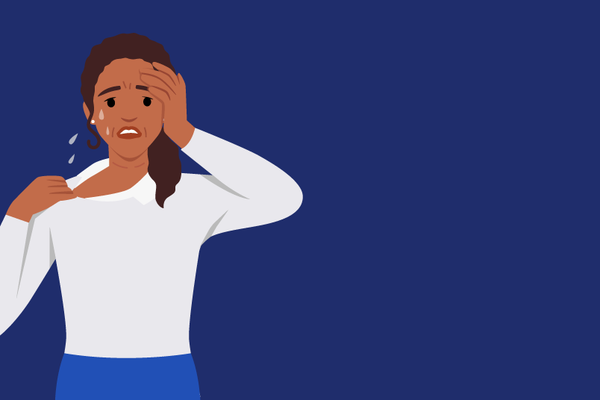Like it or not, all women eventually go through The Change. You likely associate it with getting older, hot flashes and not getting your period anymore.
Most women go through menopause between ages 40 and 58, with the average age being 51, says the North American Menopause Society. Once your period is gone for a full year, you've officially hit menopause and thereafter are postmenopausal.
However, for some women, menopause happens earlier than they expect. Menopause before age 40 is called premature menopause and is most often induced through medical intervention, such as cancer treatments or removal of both ovaries.
When periods end naturally between ages 40 and 45, it's called early menopause. Early menopause is experienced by about 5 percent of women, says the Office on Women's Health. Premature or early menopause can be especially devastating if you were planning to have a child naturally.
If you go through menopause prematurely or early, you may be caught off guard. The symptoms may be the same as many other women experience, but because they hit you earlier, your body may not have had a chance to gradually adjust to lower levels of hormones, so they seem worse.
The chaotic hormone fluctuations that accompany perimenopause—the years leading up to menopause—can seem especially alarming when they start early. And if you experience medically induced premature menopause, the sudden absence of hormones that comes with menopause can be very disruptive and cause significant bothersome symptoms.
If you're in this situation, find a health care provider who knows how to deal with menopause. Your provider can rule out any other health conditions. While the condition isn't reversible, you can get treatment and learn about lifestyle changes to help you cope with symptoms.
Here are some signs you may be going through early menopause.
You're having hot flashes.
Hot flashes are a common symptom of menopause. You have a warm flush or feeling that starts in the chest, neck or face and moves down the body. The severity varies in intensity, ranging from being a minor nuisance to being debilitating. You may have them once an hour, once a day, once a week or less often. They may also come in the form of night sweats, which can interrupt your sleep. Some women can identify triggers like caffeine, red wine and spicy foods. If you know your triggers you can avoid them. Most women have no known triggers. The most common triggers tend to be stress, anxiety or frustration.
Other conditions may be at play like a viral or bacterial infection or a reaction to a medication. Ask your health care provider about treatment options like hormone therapy or antidepressants. There are a few antidepressants that have the benefit of reducing hot flashes in about half of women. You may need to make lifestyle changes like wearing loose clothing or using a fan at night. Learn about signs of low estrogen.
Your periods are irregular.
You may have missed your period due to stress, certain types of meds, weight fluctuations or OD-ing on exercise. Of course, pregnancy may be to blame. If you've had a romp in the hay over the past month and aren't using reliable birth control, take an over-the-counter pregnancy test. If you still don't get your period next month, speak with your health care provider. You have to be without your period for a year to have reached menopause. But you want to address what's going on sooner rather than later.
An irregular or stopped period can be a sign of early menopause. The reason periods become less predictable as you approach menopause is that older ovaries and older eggs don't ovulate very efficiently, and, as a result, the hormone production is less predictable leading to changes in periods. Periods may be closer, farther apart, heavier, lighter or some variation of this.
You're moody.
It's not surprising you're irritable, sad, anxious or angry. You're not sleeping well, your hormones are out of whack and you're sweaty. The less predictable, more variable changes in hormones are not good for your brain. This makes mood management much more challenging. Estrogen improves our brain function, and when it is wildly variable, or not present at all, moods often suffer (just think of your monthly mood cycles). In addition to the hormones causing mood swings, poor quality sleep can aggravate the situation. Find out about causes of mood swings.
You have vaginal dryness.
When your estrogen levels are dropping thanks to menopause, vaginal dryness is common. Estrogen helps lubricate the vagina. Lubrication can help make sex more comfortable. Without this lubrication, sex can be painful. Plus, the vaginal walls are becoming thinner and less elastic from your loss of estrogen. Still, vaginal dryness can be triggered by factors like soaps, swimming pool chemicals or decongestants. Left untreated, vaginal dryness can become uncomfortable and painful. Therapies include over-the-counter vaginal moisturizers and lubricants and nonhormonal and hormonal medical therapies.
Your sleep patterns are changing.
Night sweats can wake you and interrupt sleep. Estrogen is also linked to serotonin, which is produced by your brain. Serotonin makes melatonin, a sleep hormone. In the absence of estrogen, women don't enter as deep a sleep. Certain medications and over-the-counter remedies may be able to help you get your sleep patterns back on track. Practicing good sleep hygiene is very important.
- Could You Have Low Estrogen? ›
- Menopause and Anxiety: What's The Connection? ›
- Menopausal and Feeling Forgetful? Brain Fog Might Be to Blame ›
- What Happens When You Hit Menopause Early ›
- Is It Menopause or Something Else? ›
- Top 10 Menopause Symptoms - HealthyWomen ›







